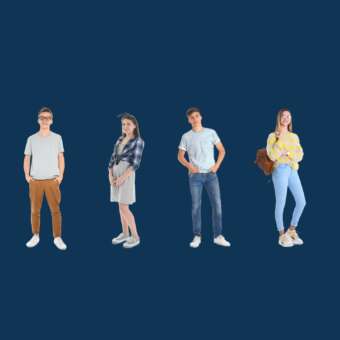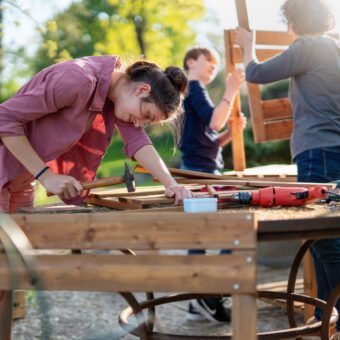When you talk to children and young people about their plans for the future and their role models, in-depth interviews usually produce a very depressed mood. Young people today have gotten caught up in too much. They feel the curse of a paradisiacal provision culture in which seemingly everything is already given.
This intoxicating digital-analog world of "anything is possible" brings with it a tremendous pressure of expectation for young people: Everything they are provided with in terms of opportunities and options, they must somehow seize. Boredom, loneliness and lack of success are taboo in the digitally networked start-up world. Lightness and joie de vivre are rare in this multi-optional world.
Young people find it difficult to develop a concrete goal. They ask themselves: What for? And where should I start?
"We can do a lot more and date a lot more now than our parents used to, have a much larger circle of friends, but somehow it's also not as binding as it used to be. You have so many options."
Actually, everything is already there! Sometimes they envy their grandparents or parents who were still able to build up something and free themselves from material restrictions and mental confinement. They themselves, on the other hand, have the feeling that they are living in a comfort zone in which the only thing they have to do is make sure that everything stays the way it is. Sometimes the hope still glimmers of becoming a superstar overnight, topping everything that has gone before: a YouTuber with millions of followers or a start-up founder who is already a billionaire in his late 20s.
In view of this pressure of expectation, young people experience every concrete decision, every targeted further development, as a personal restriction and burden. As a result, they often can't make up their minds and prefer to stay under cover. For them, there are no longer any great role models, the one hero who becomes the exemplary and binding guiding star for their own development.
"I have a friend who has 560 flames, it's awesome. How did he do that?"

However, there is a whole armada of fragmented and temporary heroes. Above all, the YouTubers, who are often the same age, are important development helpers for the young people. They take on the function of a big sister or big brother.
They are not the perfect victors, but they are approachable, approachable, and they reveal their own weaknesses. In this way, they free the young people from the paralyzing compulsion to be perfect. They cushion the gap between fantasies of greatness and fears of failure. They open up the way to analog everyday life, from mending bicycles to putting on makeup, shopping, baking cakes, flirting, learning languages, writing homework or coming to terms with their own puberty. Through the new heroes at eye level, the young generation practically educates and teaches itself. They are looking for a new measure of a successful life in a perfectionist world.
"Bloggers don't actually have any blatant talent. They just blog. Anyone can do that. They're just who they are, and yet they're special. They've become successful because people like them the way they are."
The results are based on an in-house study conducted by rheingold on the topic of "childhood heroes".
For this purpose, ten rheingoldInterviews® and two rheingoldGroups® with eight interviewees per group as well as an IntenseDay with six children were conducted and exchanged with ten children in a daily chat for one week. In addition, findings from the 2015 Children's Study and the 2017 Youth Study were incorporated.




